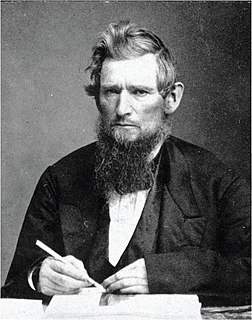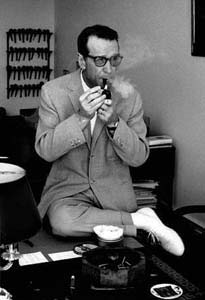A Quote by Ezra Cornell
I have a fine lot of telescopes. I have one with which I can see the Mountains in the Moon.
Related Quotes
Before practicing meditation, we see that mountains are mountains. When we start to practice, we see that mountains are no longer mountains. After practicing a while, we see that mountains are again mountains. Now the mountains are very free. Our mind is still with the mountains, but it is no longer bound to anything.
The [Moon] surface is fine and powdery. I can kick it up loosely with my toe. It does adhere in fine layers like powdered charcoal to the sole and sides of my boots. I only go in a small fraction of an inch, maybe an eighth of an inch, but I can see the footprints of my boots and the treads in the fine sandy particles.
Before I had studied Zen for thirty years,
I saw mountains as mountains,
and waters as waters.
When I arrived at a more intimate knowledge, I came to the point where I saw that mountains are not mountains,
and waters are not waters.
But now that I have got its very substance
I am at rest.
For it's just that
I see mountains once again as mountains,
and waters once again as waters.
This Excellent Mathematician having given us, in the Transactions of February last, an account of the cause, which induced him to think upon Reflecting Telescopes, instead of Refracting ones, hath thereupon presented the curious world with an Essay of what may be performed by such Telescopes; by which it is found, that Telescopical Tubes may be considerably shortened without prejudice to their magnifiying effect. On his invention of the catadioptrical telescope, as he communicated to the Royal Society.
Is not the midnight like Central Africa to most of us? Are we not tempted to explore it,--to penetrate to the shores of its Lake Tchad, and discover the source of its Nile, perchance the Mountains of the Moon? Who knows what fertility and beauty, moral and natural, are to be found? In the Mountains of the Moon, in the Central Africa of the night, there is where all Niles have their hidden heads. The expeditions up the Nile as yet extend but to the Cataracts, or perchance to the mouth of the White Nile; but it is the black Nile that concerns us.
You can put this another way by saying that while in other sciences the instruments you use are things external to yourself (things like microscopes and telescopes), the instrument through which you see God is your whole self. And if a man's self is not kept clean and bright, his glimpse of God will be blurred - like the Moon seen through a dirty telescope. That is why horrible nations have horrible religions: they have been looking at God through a dirty lens.


































